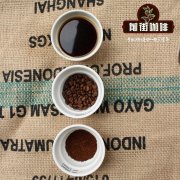Is the washed pacas Coffee good in Huayang Merlot Garden, Honduras? introduction to the History of St. Vincent's treatment Plant

Professional coffee knowledge exchange more coffee bean information please follow the coffee workshop (Wechat official account cafe_style)
Pacas seed washing at San Vincent treatment Plant in Santa Bharara, Honduras.
Honduras Santa Barbara Finca Miraflores Juan Contreras Pacas Washed
Producing area: Santa Bharara (Santa Barbara)
St. Vincent's treatment yard
Manor; Flower Mello Manor (Miraflores)
Variety: pacas species
Treatment; washing.
Baking degree: medium baking
Flavor description: floral notes, sweet nuts, juicy feeling, bright but delicate and pleasant acidity, sweet wax gourd sweet feeling as the ending
Of the 18 provinces in Honduras, 15 are engaged in coffee production. It is no exaggeration to say that coffee is an important cash crop and source of foreign exchange in Honduras. Coffee has created more than 1 million jobs in Honduras and has a bearing on the livelihood of many families. In coffee gardens in Honduras, regardless of men and women, coffee beans are picked by hand and carefully processed and processed according to the needs of the market to meet the different tastes of consumers. Honduras is also one of the most important boutique coffee producing areas in the world.
The coffee is of very good quality. The coffee varieties planted are 100 per cent Arabica, of which 69 per cent are HG, 19 per cent are CS and 12 per cent are SHG; there are a variety of varieties, such as Typica, Bourbon, Caturra, Villa Sarchi and Lempira. Coffee in Honduras mainly comes from six major producing areas, which are located in the west and south, namely, Santa Barbara, El Paraiso, Copan, La Paz, Comayagua and Olancho, with an average altitude of more than 1100 meters above sea level.
In addition to producing high-quality coffee, Honduras also actively supports and invests in the export of organic or rainforest alliance coffee beans. Its coffee quality is not only first-class, but its price is also the most competitive among Central American countries.
St. Vincent's processing plant buys beans produced by small coffee farmers in the surrounding towns of El Cielito, Las Flores and El Cedral, each with at least 35 families and one school. Although it is often difficult to separate these small farmers' production batches because of their small quantities, the coffee produced in these regions can still be amazing with high sweetness and fruity. San Vicente is a family-run processing plant that is well known locally. Through the project to help farmers upgrade planting technology and improve production equipment, committed to close contact with producers, and coffee cup test as a strict check for each batch of products.
END
Important Notice :
前街咖啡 FrontStreet Coffee has moved to new addredd:
FrontStreet Coffee Address: 315,Donghua East Road,GuangZhou
Tel:020 38364473
- Prev

An introduction to Carnett Manor in Costa Rica the characteristics of Huangkaduai varieties
Carnett Manor Canet is located at the highest altitude where Tarrazu Tarazu Coffee is grown in Costa Rica. Carnett is the name of a small farm in this field. Finca Canet is a small 5-hectare manor located in the town of San Marcos in the Tarazu producing area (Tarrazu), composed of the Robles brothers Leo, Elianand Me.
- Next

Introduction of Coffee production in Huilan, Colombia
For more information on coffee beans, follow the Coffee Workshop (official Wechat account cafe_style) in the dense arrangement of coffee trees along the steep slopes of the Andes Mountains in the central and western Colombian province of Risaralda. When thousands of coffee beans ripen and turn red, it is also the harvest that local coffee farmers are ready to pick by hand.
Related
- Does Rose Summer choose Blue, Green or Red? Detailed explanation of Rose Summer Coffee plots and Classification in Panamanian Jade Manor
- What is the difference between the origin, producing area, processing plant, cooperative and manor of coffee beans?
- How fine does the espresso powder fit? how to grind the espresso?
- Sca coffee roasting degree color card coffee roasting degree 8 roasting color values what do you mean?
- The practice of lattes: how to make lattes at home
- Introduction to Indonesian Fine Coffee beans-- Java Coffee producing area of Indonesian Arabica Coffee
- How much will the flavor of light and medium roasted rose summer be expressed? What baking level is rose summer suitable for?
- Introduction to the characteristics of washing, sun-drying or wet-planing coffee commonly used in Mantenin, Indonesia
- Price characteristics of Arabica Coffee Bean Starbucks introduction to Manning Coffee Bean Taste producing area Variety Manor
- What is the authentic Yega flavor? What are the flavor characteristics of the really excellent Yejasuffi coffee beans?

